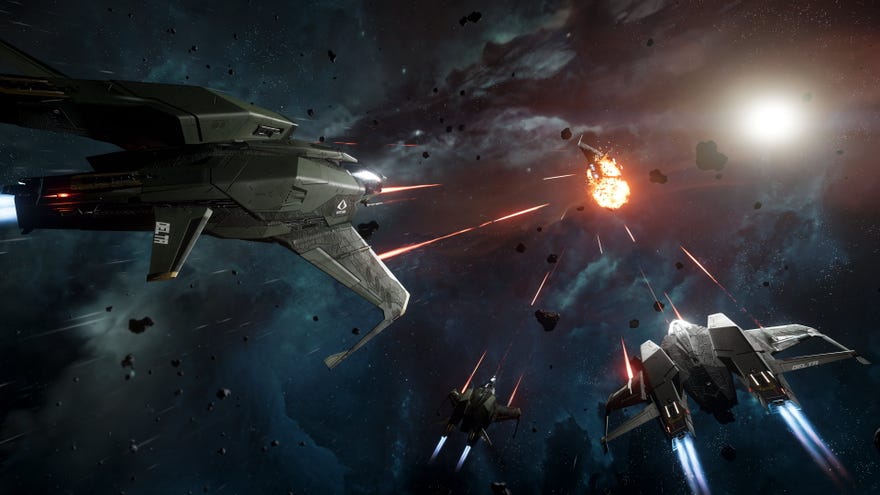Star Citizen director assures fans it "is not a pipe dream"
After complaints suggesting certain features in the game would take decades to finish
Chris Roberts, the director of Star Citizen, took to the sandbox space game's forum this weekend to address recent complaints on how long it's taking to implement certain features. It comes as a response to a fan's YouTube video questioning why the perpetually-in-development MMO doesn't yet have certain aspects of the "atmospheric room systems", which were first shown by developers Cloud Imperium four years ago.
Roberts' first lengthy response to this player, who's known as "Camural" on the forum, said that they have parts of the system running but it's a complex thing. They "need to literally 'plumb' the ships with a set of extra components", he explained, so for efficiency they're saving it until they revisit a load of systemic ship features at once.
"I am very invested in making Star Citizen's gameplay as systemic as possible as I think this will open up so many possibilities of emergent and immersive gameplay," Roberts said, after detailing a complex example of how one single stray bullet might interact with atmosphere, damage, fire and other systems to create an escalating disaster for several players to carefully tackle. "The downside of this approach is that it takes longer to see results as opposed to scripting actions as you have to build the fundamental systems first and have them interact with each other before the full extent of the gameplay becomes apparent."
This reasoning wasn't quite good enough for Camural, who replied claiming that what Roberts described "would at the very least take another 10-20 years".
Roberts disagreed. In an even lengthier response, he talked about his gripes with "internet discourse" and people assuming the worst. "If a feature is missing, late or buggy it's because the company or the developer lied and or / is incompetent as opposed to the fact that it just took longer and had more problems than the team thought it would when they originally set out to build it," he said. He added that developers can "get just as frustrated with the time things take." And they have a lot to do.
"This is the game I've dreamed of my whole life. Now I am in a position to realise it, I am not willing to compromise its potential because it is taking longer than I originally envisioned." Though he did note that it was "an internal priority" to finish and polish the basics so the game is more fun as they work towards the grand vision.
"I can promise you the gameplay I described is not a pipe dream, nor will it take 10 to 20 years to deliver. I described systems we either have working, or are working on; we've even shown early versions of some of this like fire on Inside Star Citizen. I can't promise you exactly what quarter it will come together but once the new Road Map web work is done you'll be able to see the teams progress to achieving what I describe in real time."
CIG plan to expand their public roadmap to show fans the current tasks, goals, and priorities of all their teams, exposing more of the development process. "This won't stop people from disagreeing with our priority calls or how long something takes, but at least it will share the overall picture and people can see exactly what everyone is working on at any moment and how long it is projected to take," Roberts said in his forum post.
Star Citizen (and Squadron 42, the singleplayer story game) started crowdfunding in 2012 with a Kickstarter, and has now raised over $313 million (£241m) from selling alpha access, in-game ships, and other bits. It's a huge amount of money compared to other video game crowdfunding efforts, though not so much for a project this ambitious and long-running.

